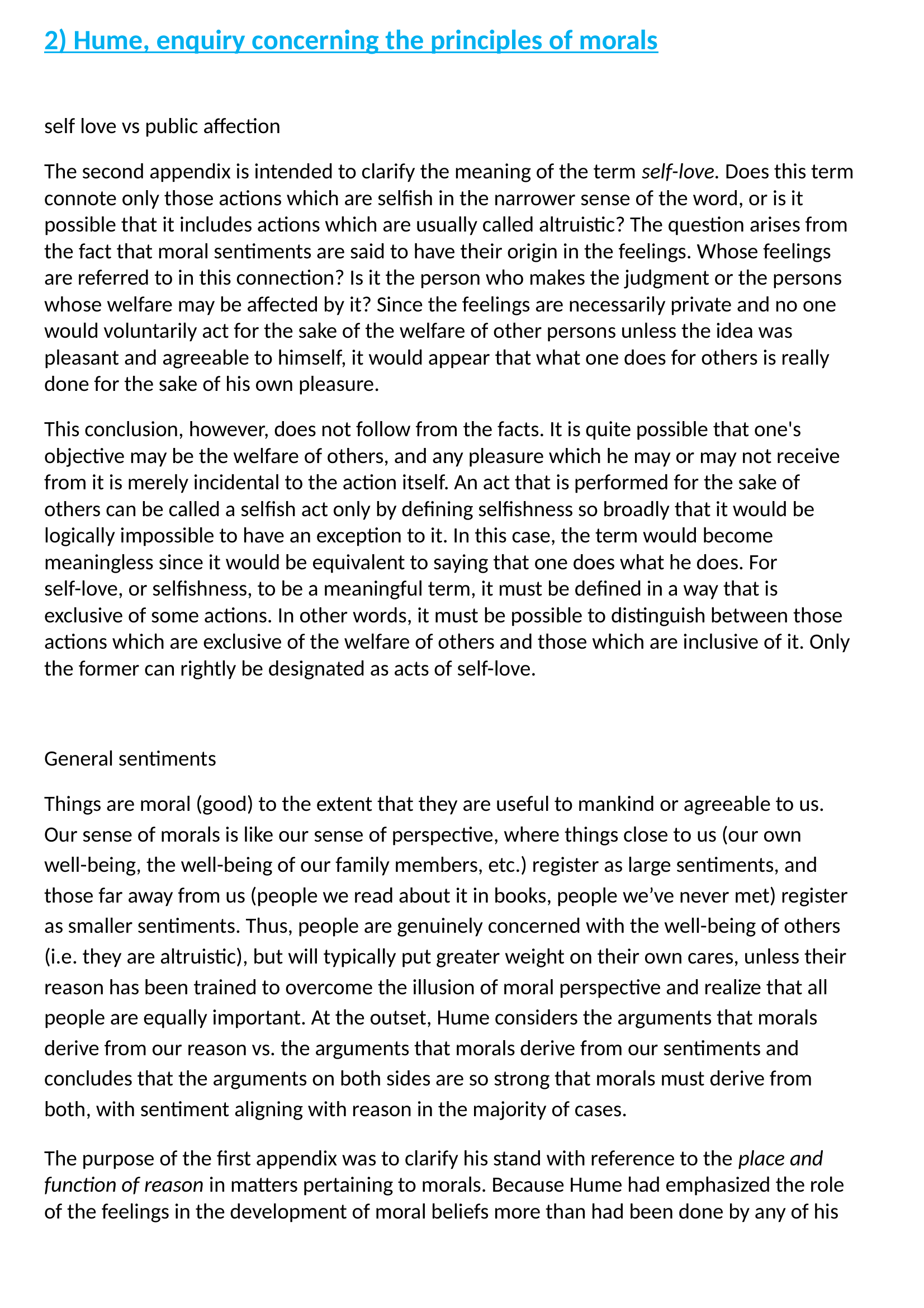Aristotle Nicomachean Ethics
Publié le 03/04/2016

Extrait du document
«
2) Hume, enquiry concerning the principles of morals
self love vs public affection
The second appendix is intended to clarify the meaning of the term self-love.
Does this term
connote only those actions which are selfish in the narrower sense of the word, or is it
possible that it includes actions which are usually called altruistic? The question arises from
the fact that moral sentiments are said to have their origin in the feelings.
Whose feelings
are referred to in this connection? Is it the person who makes the judgment or the persons
whose welfare may be affected by it? Since the feelings are necessarily private and no one
would voluntarily act for the sake of the welfare of other persons unless the idea was
pleasant and agreeable to himself, it would appear that what one does for others is really
done for the sake of his own pleasure.
This conclusion, however, does not follow from the facts.
It is quite possible that one's
objective may be the welfare of others, and any pleasure which he may or may not receive
from it is merely incidental to the action itself.
An act that is performed for the sake of
others can be called a selfish act only by defining selfishness so broadly that it would be
logically impossible to have an exception to it.
In this case, the term would become
meaningless since it would be equivalent to saying that one does what he does.
For
self-love, or selfishness, to be a meaningful term, it must be defined in a way that is
exclusive of some actions.
In other words, it must be possible to distinguish between those
actions which are exclusive of the welfare of others and those which are inclusive of it.
Only
the former can rightly be designated as acts of self-love.
General sentiments
Things are moral (good) to the extent that they are useful to mankind or agreeable to us.
Our sense of morals is like our sense of perspective, where things close to us (our own
well-being, the well-being of our family members, etc.) register as large sentiments, and
those far away from us (people we read about it in books, people we’ve never met) register
as smaller sentiments.
Thus, people are genuinely concerned with the well-being of others
(i.e.
they are altruistic), but will typically put greater weight on their own cares, unless their
reason has been trained to overcome the illusion of moral perspective and realize that all
people are equally important.
At the outset, Hume considers the arguments that morals
derive from our reason vs.
the arguments that morals derive from our sentiments and
concludes that the arguments on both sides are so strong that morals must derive from
both, with sentiment aligning with reason in the majority of cases.
The purpose of the first appendix was to clarify his stand with reference to the place and
function of reason in matters pertaining to morals.
Because Hume had emphasized the role
of the feelings in the development of moral beliefs more than had been done by any of his.
»
↓↓↓ APERÇU DU DOCUMENT ↓↓↓
Liens utiles
- How to live a good life according to aristotle and kant
- What are reasons and why do they matter in ethics?
- Business ethics project
- Written code of ethics : An alternative to discrimination
- Medical Ethics.

































